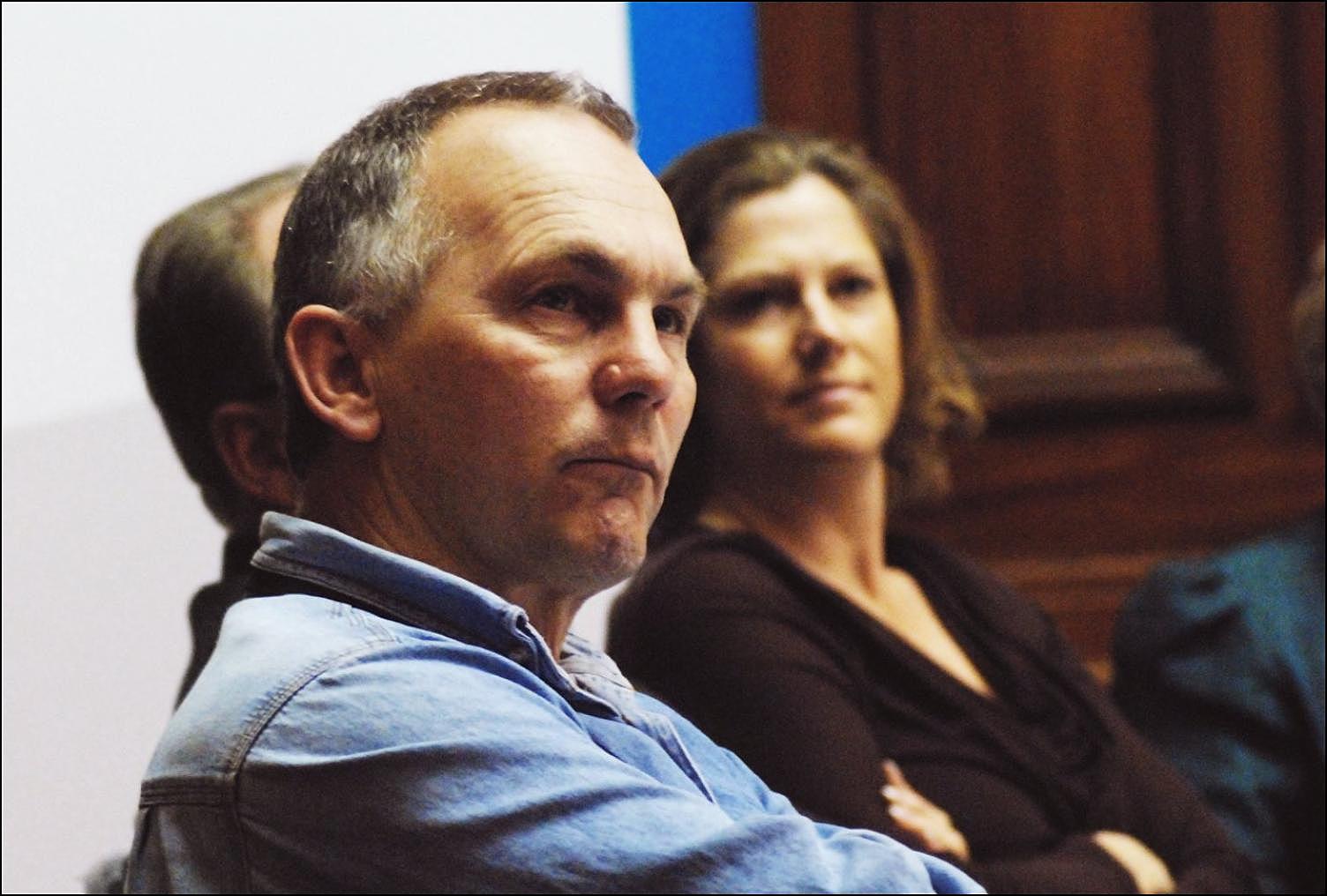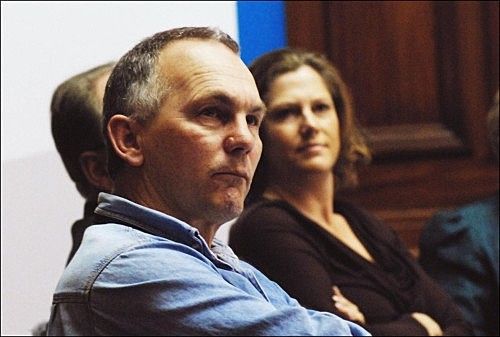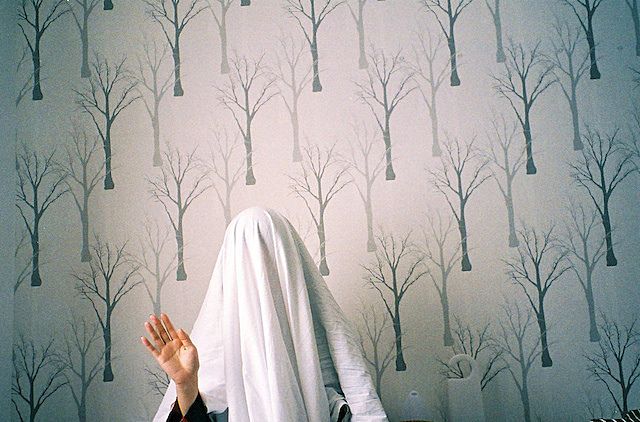Asking the Right Questions: Brent Edwards
As we head towards New Zealand's 51st general election, we talk to four political editors who are tasked with setting the agenda. Today: Radio New Zealand's Brent Edwards
As we head towards New Zealand's 51st general election, Gavin Bertram talks to our political editors, the people who have been tasked with setting the agenda.
Having reported on Parliament for much of his 25 years as a journalist, Radio New Zealand's Brent Edwards is one of the most experienced political reporters in the country. Political editor at RNZ since 2006, he's also reported on economics and has chaired the Journalism Matters summit.
What’s your life like at the moment?
Pretty hectic, pretty busy. Early starts, generally, and late finishes.
Was politics always the aim when you became a journalist?
Probably, although I’ve never particularly planned my working life. I know some people have 5-year or 10-year plans, but I never had any such thing. But I’ve always had an interest in politics, from when I was a kid. I followed the political debates, and then when I went to university I did a BA in history and political science, and then went on and did a Masters in political science. So that shows politics was always in my blood in terms of that interest in the political process. But it’s all happened by chance in a way, not through design. I guess I ended up in the job I probably hoped to be in when I was young. I never really thought about it directly.
What were your first experiences in the press gallery like?
About four weeks after I arrived here in the press gallery, David Lange resigned as Prime Minister. I caught the tail end of that Labour government which was absolutely falling apart. There were things that worried me about the press gallery when I arrived. There was a pack mentality, there was safety in numbers, there was certainly I think some of the senior gallery people deciding on the news line and everybody kind of following it because then they’d feel safe.
As a young reporter at that time, I was pretty appalled by the manipulation you saw going on. If we look at the Cameron Slater stuff and the way stuff gets dropped, it hasn’t changed. I’ve always struggled to try and break through that really, that kind of manipulation of the news that goes on. The example I saw was with the Labour government of the time, and Mike Moore becoming Prime Minister. One of Mike Moore’s senior advisers would come around the press gallery and drop material that was undermining Geoffrey Palmer, but of course this was all off the record. And those stories were run and it built up this momentum and this sense that Geoffrey Palmer’s Prime Ministership was really weak. Mike Moore would be asked about it on record, and would say ‘I don’t know anything about that, it’s terrible’. The journalists doing those stories knew the source of the information, and on the basis of protecting your source, which is a well-established journalistic fact... but in my view those stories should have been done differently. I’ve always taken this approach, and to be honest I don’t get a lot of leaks, and that’s because I have a very good look at who is going to be providing me the information and what’s the political motivation for doing that. I’m not interested in being played by politicians. That still goes on, and it’s always a sense of disquiet I’ve had about our political process and our coverage of it.
One of Mike Moore’s senior advisers would
come around the press gallery and drop material
that was undermining Geoffrey Palmer,
but of course this was all off the record.
Does that set you apart from some others in the press gallery?
I’m not going to comment on that, but all I’ve tried to do is to cover politics independently. I have tried to avoid falling into the trap of doing what others do.
Has the pack mentality changed over the years?
It’s nowhere near as strong as it was. What you’ll get, because there’s a group of people up there and we’re all working together, is you do talk to one another, and talk about issues and what’s happening. But certainly I think the sort of thing that used to happen in the early 90s where some of the key political editors would get together after a press conference with the Prime Minister and decide on what the angle was, that doesn’t happen at all now. A lot of people are a lot more independent in picking up the story lines that they think are important.
Were there people you admired when you started reporting on politics?
The first political editor I worked under, John Goulter, he would have had an early influence on my political reporting. John was a great political reporter and a great writer, I learnt a lot from him, but I don’t think I have ever tried to model myself on anyone though. It’s important that you try and do things your way and try and be independent.
The sort of thing that used to happen in the early 90s
where some of the key political editors would get together
after a press conference with the Prime Minister
and decide on what the angle was,
that doesn’t happen at all now.
Is the ability to stay onside with people a trait of a good political journalist?
It’s about maintaining relationships, but not to the degree that you are doing anyone any favours. You’ve got to be independent, straight down the middle, professional, and be very clear with people that that is how you’re going to handle issues. That built-up trust in itself is important, because the politicians and various other players in the political process that you deal with will understand that and know that. I try to be as honest as I can, I don’t try and bullshit people or trick them. I’m straight up about where I’m coming from, about what I’m asking, about the story I’m looking at, and I think that’s important.
How different is interviewing in politics to interviews in other journalistic realms?
Politicians always have a message, their story that they want to get out. Often there are questions they don’t want to answer, and you shuffle around. When you talk about trying to get at the truth, in politics it’s often around different opinions and interpretations of the truth. It can be difficult. If you watch those sorts of public interviews that go on, at the end of it you think ‘well, what did we learn there? Probably nothing,’ because politicians in particular get all the media training, and that’s about how to avoid answering questions, and not about how to inform the public about things that they’re doing. It’s a problem for journalism, it’s a problem for the political process, and a problem for our democracy I think in terms of the way it’s developed. Some people see it as the game of politics, and about how you can best avoid answering questions, and how you can best put forward your spin on a particular situation. Our job is how we can break through all of that and as far as possible tell the public what is really going on. And yeah, that can be bloody difficult at times. Often, to be honest with you, you can’t say ‘somebody’s lying’. When pretty much they are lying. When we talk about politics as usual there’s probably a degree of cynicism among the public, but for journalists it can be very difficult to get at the truth. Most politicians aren’t actually that straight-up.
Politicians in particular get all the media training,
and that’s about how to avoid answering questions,
and not about how to inform the public about
things that they’re doing. It’s a problem for journalism,
it’s a problem for the political process,
and a problem for our democracy.
Clearly it’s become more difficult over the time you’ve been reporting on politics?
Much more increasing use of spin and PR, and of course over that period the news media has obviously suffered with papers closing down and staff in news organisations shrinking. There’s a lot less scrutiny. You’ve got one or two little agencies popping up on the net, but overall there’d be fewer people looking at politics than there are people employed trying to put a political spin on what the ministers are doing, or if you look at the broader public service, a spin on what the government is doing. So yeah, it’s a hell of lot more difficult, and I think the odds are tilted further against journalists in that area than they were 25 years ago.
Can you explain the scope of your role as a political editor?
We’ve got a team of six in the press gallery for Radio New Zealand. I assume the role of running those guys. But it’s covering politics, having an overview, and trying to provide some analysis of what’s going on, and trying as much as possible to break through that spin to make sense of what’s happening in politics and to try and explain that in the clearest possible way to our listeners so they are as informed as possible about what’s happening in our democracy. So they can make their informed judgements and form their opinions based on solid information. I think that’s the main way I would see it. If we look at information as power in our society, and governments like to control the information flow, my job as political editor, and all the guys that work with me, is to as much as possible break through that and get the information out to the public. So the public can hold the power rather than it being held by the politicians.
Overall (today) there’d be fewer people looking at politics than there are
people employed trying to put a political spin
on what the ministers are doing.
How important is having a thick-skin?
I think you just have to have a very clear view of what you are doing, because you do come under attack a lot, you do get a lot of criticism and people try and skew things by putting up false alternatives and red herrings to put you off the scent. You just need to be very clear about the job you’re doing. If you’re very clear about what your role is then you can ignore all of the extraneous stuff that might come your way.
Is being aggressive a prerequisite?
I don’t think you need to. I wouldn’t consider myself like that. Obviously with different presenters doing those public interviews, you need to have a degree of aggression to try and break through because you’ve only got three or four minutes to try and break through that spin that the politicians are putting up straight away. I think as a political reporter you need to be firm and you need to be persistent, but I don’t think you need to be aggressive.
Because you don’t get a lot of leaks, is more legwork required to get stories?
One of the things that Radio New Zealand does is to provide a comprehensive coverage of Parliament. We actually take Parliament seriously. Without knocking some media organisations, they don’t really do a lot of Parliamentary coverage. There are a lot of great stories to come out of that actually. So we do the legwork; you’re getting around the actual sitting of the house, around the select committees, around the MPs, you’re doing all of those things, and Official Information requests through to departments on issues you’re aware of, and just talking to people as much as possible. Just the work that journalists do in an effort to try and pick up information to find out what’s going on.
Occasionally people do come to us and tell us stuff, but I’m just very careful about what’s being told and I’m a great one for attribution where possible. And if you don’t, if somebody’s going to provide it to you off the record, then you can actually source it elsewhere and prove it. Often when stories appear of that nature where it’s because of a leak, actually the biggest political story is who leaked it and why? And yet we never ever get told that because, fair enough, the journalist who’s got the story isn’t going to reveal their source, but in a lot of the stories we see that is in fact the big question. Who leaked this and why? There’s almost always a political motivation at play.
Often when stories appear of that nature
where it’s because of a leak, actually
the biggest political story is who leaked it and why?
How do you rate the access to politicians in New Zealand?
In New Zealand in the main we have great access to politicians. If you think of the Prime Minister during a sitting week, he has a post-Cabinet news conference on a Monday which is for anywhere up to half an hour or more. We can then grab him on his way to his caucus meeting on Tuesday morning, on the way to Parliament on Tuesday afternoon, we can grab him again on Wednesday afternoon on the way to Parliament, and the rest of the time when he’s out around the country you probably have three or four stand-ups. We’re not normally with him but we’ll have journalists in our branch offices who’ll get along to those. I guess the only time is when there are issues happening that they’re not particularly keen to talk about then they can go to ground and be hard to talk to, as we’re finding at the moment with Judith Collins. I guess the woman who the Prime Minister said was no shrinking violet, well she’s shrunk pretty small at the moment. But in general, the New Zealand news media has great access to our politicians, compared with our colleagues even across the Tasman. In Australia I don’t think they get the same access as consistently as we do.
You’ve been around for more than two and a half decades. Is this a particularly strange time in New Zealand politics?
Yeah, but I think there have been strange periods in New Zealand politics all through that time. I’m not saying this stands out. We’ve had funny new parties start up, and the shift to MMP in the 90s was quite remarkable and pretty exciting. This is just a carry-on from all of that and I’m not sure if I would necessarily say it’s hugely different. There are questions over the story at the moment in regards to what’s happening with Cameron Slater, but we’ve had all sorts of that nature over those years. That’s the great thing about covering politics really, it’s rarely dull.
That wraps up our series with the political editors of New Zealand
You can follow Brent on Twitter and at Radio New Zealand
Previously featured in this series:
Patrick Gower (TV3)
Corin Dann (TVNZ)
Tracy Watkins (Fairfax)


